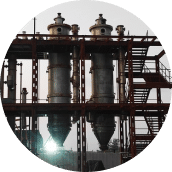
Evaporation Plants
Elevate your industrial operations with our Evaporation Plants. Engineered for optimal performance, our plants...
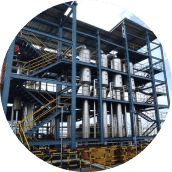
Multi Effect Evaporators
Multiple Effect Evaporators are high-performance HVAC units streamlining liquid concentration.
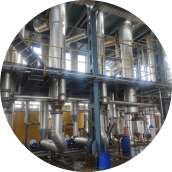
Wastewater Evaporators
Upgrade your industrial operations with our premium-grade Wastewater Evaporators. Designed for peak efficiency...
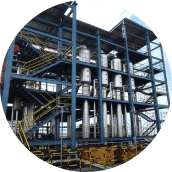
Agitated Thin Film Dryer
Film Dryers are industrial machines designed to efficiently remove moisture from thin layers of materials...
Categories
- Evaporation Plants
- Multi Effect Evaporators
- Wastewater Evaporators
- Agitated Thin Film Dryer
- Zero Liquid Discharge System
- Forced Circulation Evaporator
- Membrane Bioreactor
- Industrial Evaporators
- Zero Liquid Discharge Plant
- Wastewater treatment plant
- Effluent treatment plant
- Evaporator
- Vacuum Evaporator
- RO reject evaporator
- Effluent treatment plant manufacturer
- Vertical thin film dryer
- ATFD
- Heat Exchanger
- Multi Effect Evaporation Plant
- Multi Effect Evaporation System
Know More About Us

Agitated Thin Film Dryer
Film Dryers are industrial machines designed to efficiently remove moisture from thin layers of materials...

Our Team
It is the back of our team members that have enabled us to stand out in the market and gather a wide customers base. Based on qualification, experience, skills and knowledge, we have allocated...

Why Us?
We guarantee premium quality of our products as we manufacturer them using the best raw material and latest production technology. We practice fair set of policies that are framed keeping in mind...
About Us
Avail value for money products such as Forced Circulation Evaporation Plant, Wastewater Multi Effect Evaporators, Mechanical Vapor Recompression Mvr, etc..
Vikrama Innovative Technologies is dedicated to achieving the utmost satisfaction of our esteemed customers, recognizing that customer satisfaction is paramount for survival in the competitive market landscape. Through our unwavering commitment to quality and excellence, we have effectively positioned ourselves as a reputable manufacturer and supplier of cutting-edge products like Wastewater Evaporators, Film Dryer, Liquid Discharge System, Membrane Bioreactor, etc. Integrity is the cornerstone of our business philosophy.
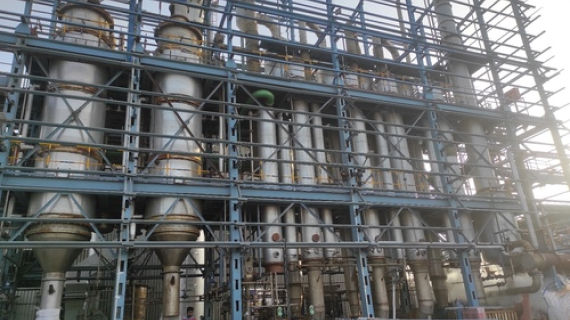
MostPopularProducts
pharma effluent treatment plant
Product Details:
- Product Type Industrial Effluent treatment plant
- Application ZLD
- Function zero liquid discharge
- Capacity Min 10 KLPD
- Click to View more
pharma effluent treatment plant Price And Quantity
- 5000000 INR/Unit
- 1 Unit
pharma effluent treatment plant Product Specifications
- Min 10 KLPD
- zero liquid discharge
- Industrial Effluent treatment plant
- ZLD
pharma effluent treatment plant Trade Information
- Cash in Advance (CID)
- 10 Unit Per Month
- 5 Days
- Contact us for information regarding our sample policy
- All India
Product Description
Pharmaceutical manufacturing industriesgenerate a significant amount ofwastewatercontaining hazardous and toxic chemicals, which must be treated before being released into the environment. TheEffluent Treatment Plant(ETP) is used to treat wastewater generated from pharmaceutical manufacturing units.
Now, we will discuss the working principle of ETP and the functions of various components involved in it.
About Effluent from Pharma Industry:
The waste produced by the pharmaceutical manufacturing units is a complex mixture of different materials, including harmful and dangerous compounds. The type of production method, the type of raw materials utilized, and the nature of the manufactured products all affect the characteristics of effluent from pharmaceutical manufacturing industries.
These are some of the prevalent traits of effluent from pharmaceutical manufacturing industries:
High Organic Content:
The solvents, acids, and bases employed in the production process, as well as other organic compounds, are present in high concentrations in pharmaceutical effluent. If not handled properly, these organic molecules may be harmful and harm the environment.
High Chemical Oxygen Demand (COD):The COD is a measure of how much oxygen is necessary to oxidize the organic substances found in wastewater. The pharmaceutical effluent has a high COD value, which denotes that there are several organic contaminants present.
High Biological Oxygen Demand (BOD):The biological oxygen demand (BOD) is a measure of how much oxygen microorganisms need to break down organic materials in wastewater. The presence of biodegradable organic materials is indicated by the pharmaceutical effluent's high BOD value.
High Suspended Solids:Both organic and inorganic particles are present in high concentrations in the pharmaceutical effluent's suspended solids. If not handled appropriately, these suspended solids may harm the environment.
Presence of Heavy Metals:The pharmaceutical wastewater contains dangerous heavy metals including lead, mercury, and cadmium that can affect the environment if not adequately handled.
High pH:Depending on the manufacturing process and raw materials utilized, pharmaceutical effluent might have a pH that is extremely acidic or extremely alkaline. If the high pH is not adequately managed, it could harm the environment.
Presence of Pathogens:Pathogens may be present in pharmaceutical effluent, including bacteria and viruses that can lead to diseases that are spread through water.
Working Principle of ETP for Pharmaceutical Manufacturing Industry:
The Effluent Treatment Plant for pharmaceutical manufacturing industries is designed to treat the wastewater generated during the manufacturing process. The ETP for the pharmaceutical industry is a combination of physical, chemical, and biological processes that help in removing the pollutants from the wastewater.
The working principle of ETP for the pharmaceutical industry involves the following stages:
1.Screening:The first stage of ETP for the pharmaceutical industry is the screening process. In this stage, the wastewater is screened to remove large solid particles and debris. The screening process helps in protecting the downstream treatment components from damage due to the presence of large solid particles.
2.Sedimentation:The wastewater is then sent to the sedimentation tank, where the suspended solids settle down to the bottom due to gravity. The sedimentation process helps in removing suspended solids and some organic matter from the wastewater.
3.Biological Treatment:The wastewater is then sent to the aeration tank, where it undergoes biological treatment. In this stage, microorganisms are added to the wastewater, which helps in breaking down the organic matter present in the wastewater. The biological treatment process is carried out in the presence of oxygen, which is provided by aeration.
4.Clarification:The wastewater is then sent to the clarifier, where the biological sludge settles down to the bottom, and the clear water is removed from the top.
5.Tertiary Treatment:The clear water from the clarifier is then sent to the tertiary treatment stage, where coagulants and flocculants are added to remove the remaining pollutants.
6.Filtration:The treated water is then sent to the filter, where the remaining suspended particles and dissolved pollutants are removed.
7.Discharge:The treated water is then discharged into the environment, meeting the regulatory standards.

Price:
- 50
- 100
- 200
- 250
- 500
- 1000+
Other Products in 'Effluent treatment plant' category



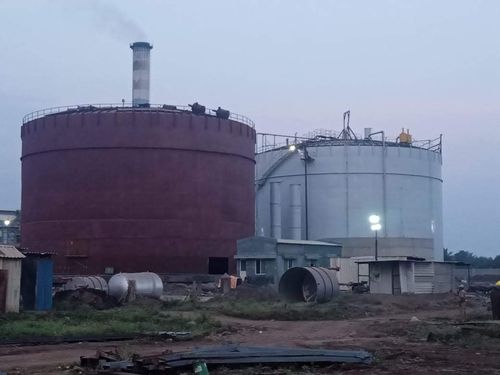




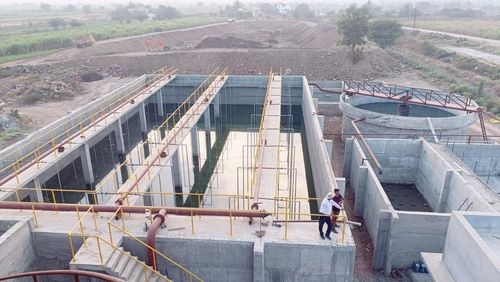
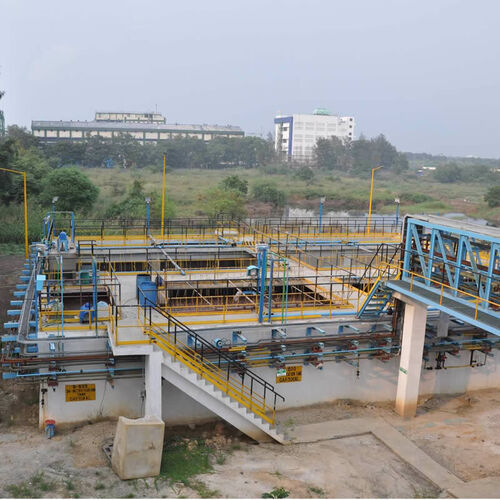

 English
English Spanish
Spanish French
French German
German Italian
Italian Chinese (Simplified)
Chinese (Simplified) Japanese
Japanese Korean
Korean Arabic
Arabic Portuguese
Portuguese